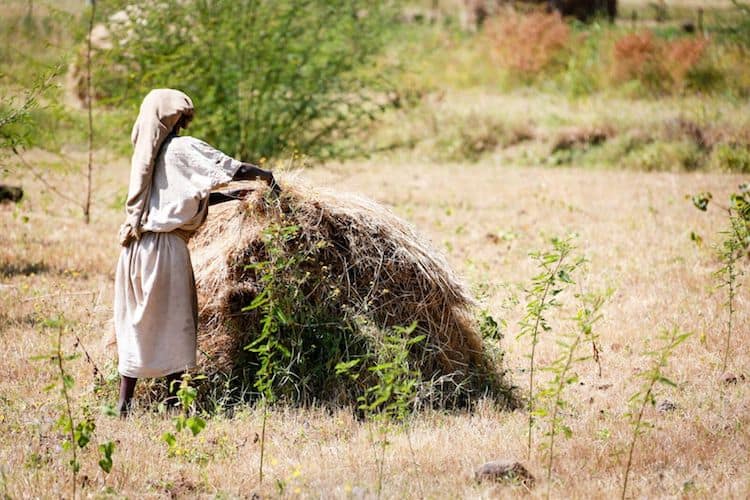A New Era of Farming: Unlocking Innovations for Smallholders Via Non-Traditional Finance
While the estimated 500 million farmers worldwide make up 6 percent of the global population, they play a vital role in the global economy, producing food for a substantial proportion of the world’s population and supporting over 2 billion poor women and men who rely on agriculture for their livelihoods. Yet, many of these farmers still experience poor yields, have uncertainty in trading and limited market access, earn low profits, and are vulnerable to climate shocks and volatile financial markets that keep them reliant on subsistence or marginal commercial farming activities.
Access to finance is not only a core need of smallholders, but also an opportunity for them to increase their agricultural innovation. That’s why the smallholder finance agenda is focused on closing the US $200 billion financing gap, while also unlocking growth and empowerment for smallholders in emerging markets. As Nathan Associates (2015) affirms, “Finance is a necessary but not a sufficient condition for productivity growth – it can unlock critical constraints but just as critical are unlocking of constraints in agricultural systems, such as access to markets for other inputs, storage and logistics and efficient market channels…”
In the effort to address production and financing challenges that smallholder farmers face, scalable and sustainable agricultural innovation uptake is worth exploring; this will help to further understand how innovation adoption and finance are interrelated.
MEDA’s goal through INNOVATE, a three-year initiative funded by the International Development Research Centre (IDRC), is to contribute to the work and learning in the smallholder finance field. We will also contribute to developing policy and explore the potential of Non-Traditional Finance (NTF) to spur improved smallholder agricultural innovation adoption.

What is Non-Traditional Finance anyway?
I’ve been asked on a few occasions how we (MEDA) understand and define Non-Traditional Finance, especially after launching our call for proposals on this very topic. On Aug. 4, MEDA announced a request for proposals from eligible organizations, companies and institutions interested in (i) piloting an NTF product/service or (ii) documenting a case study of an ongoing or completed initiative related to NTF. The aim of the call is to learn from the experiences of the grant recipients, specifically to test and document which products, services and/or delivery channels have the potential to catalyze agricultural innovation by smallholder farmers in East Africa, South Asia and South America.
We intentionally avoided a tight definition of NTF, as we want to encourage creativity and customer-centricity from applicants. However, we recognize that it’s helpful to provide guidance and examples of what we mean by NTF.
Non-Traditional Finance can be understood as a set of non-conventional approaches, products and services that are often adapted to fit the needs of clients and their context in an innovative array of single or multi-party financing including in-kind credit, collateral substitutes, insurance, guarantees, leasing/renting and so on. Generally, NTF includes products, services and/or delivery channels that go beyond standard lending and saving to actively engage with smallholder farmers, private investors and entrepreneurs offering a broader range of bundled services (financial and non-financial). While the components of NTF are not necessarily new, their combination and application exhibit non-conventional business models.
A growing number of examples and success stories of innovation supported by NTF are surfacing, from branchless banking in Kenya and China, to impact investing for precision agriculture technology. These and other examples are beginning to contribute to an underdeveloped body of knowledge that demonstrates how NTF may be critical to unlocking innovation processes among smallholder farmers and may represent an untapped opportunity to enable these farmers to break the cycle of poverty. Yet, the documentation of such experiences and guidance on promising practices for the systemic application of NTF to support scaling of innovations for smallholder farmers could be improved.
I am excited and hopeful about the dialogue and collaborative work among different kinds of actors in the smallholder finance field to close the financing gap for smallholders, and to better understand what their needs and goals are in a new era of farmer finance.
The submission deadline for the call is Oct. 6. For more information and to apply, visit our website.
Clara Yoon is a project manager at MEDA (Mennonite Economic Development Associates), based in Waterloo, Canada.
Photos courtesy of MEDA.
Homepage photo credit: CIAT, via Flickr.
- Categories
- Agriculture, Finance



